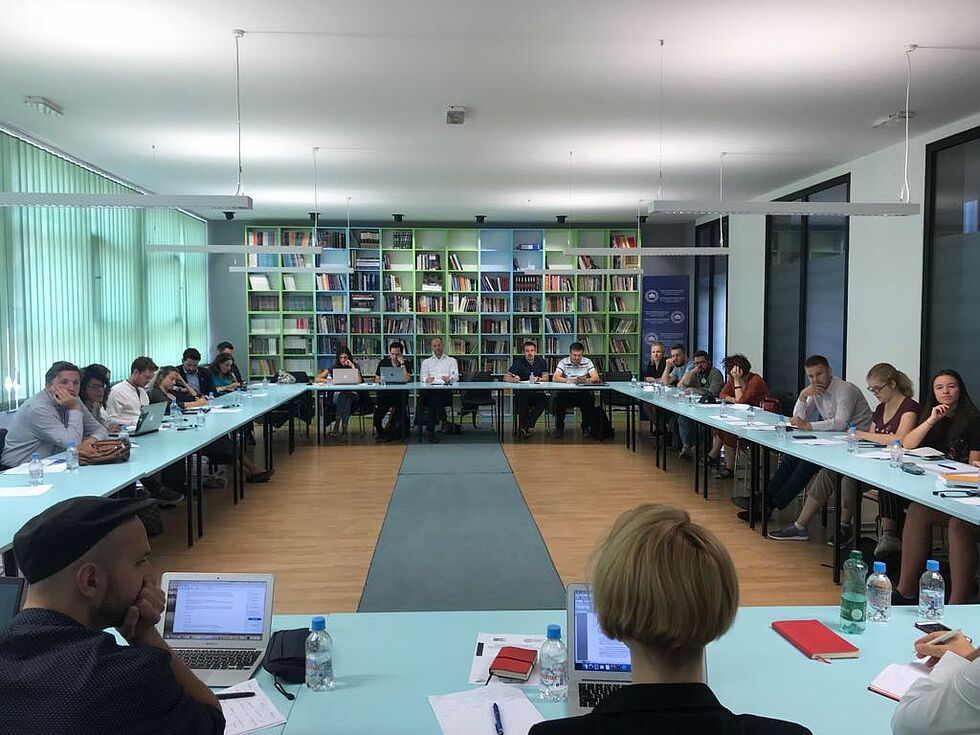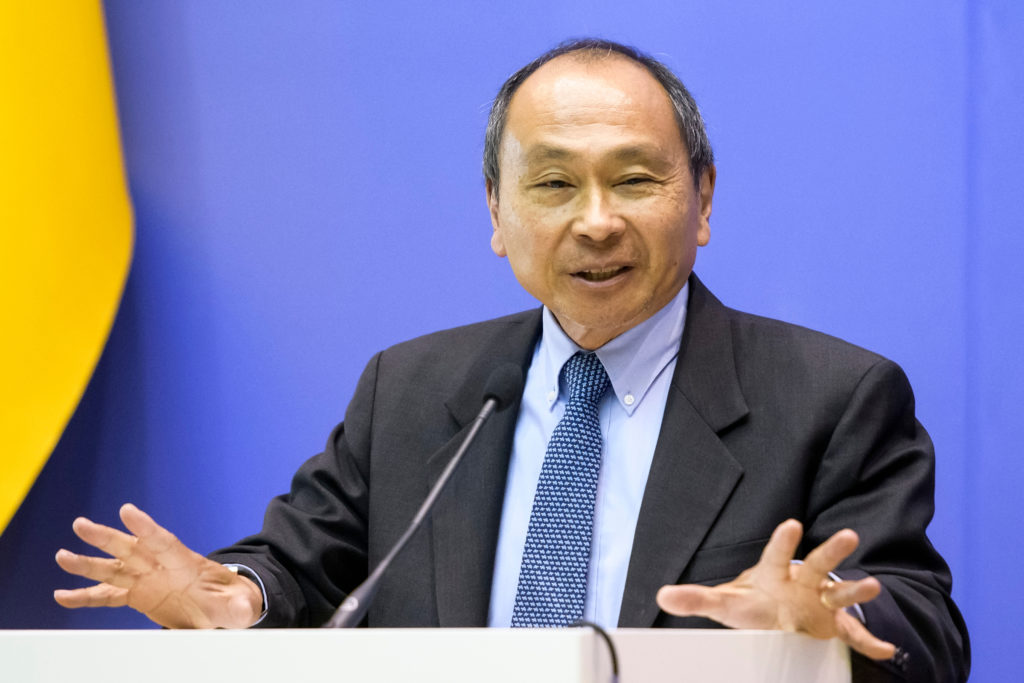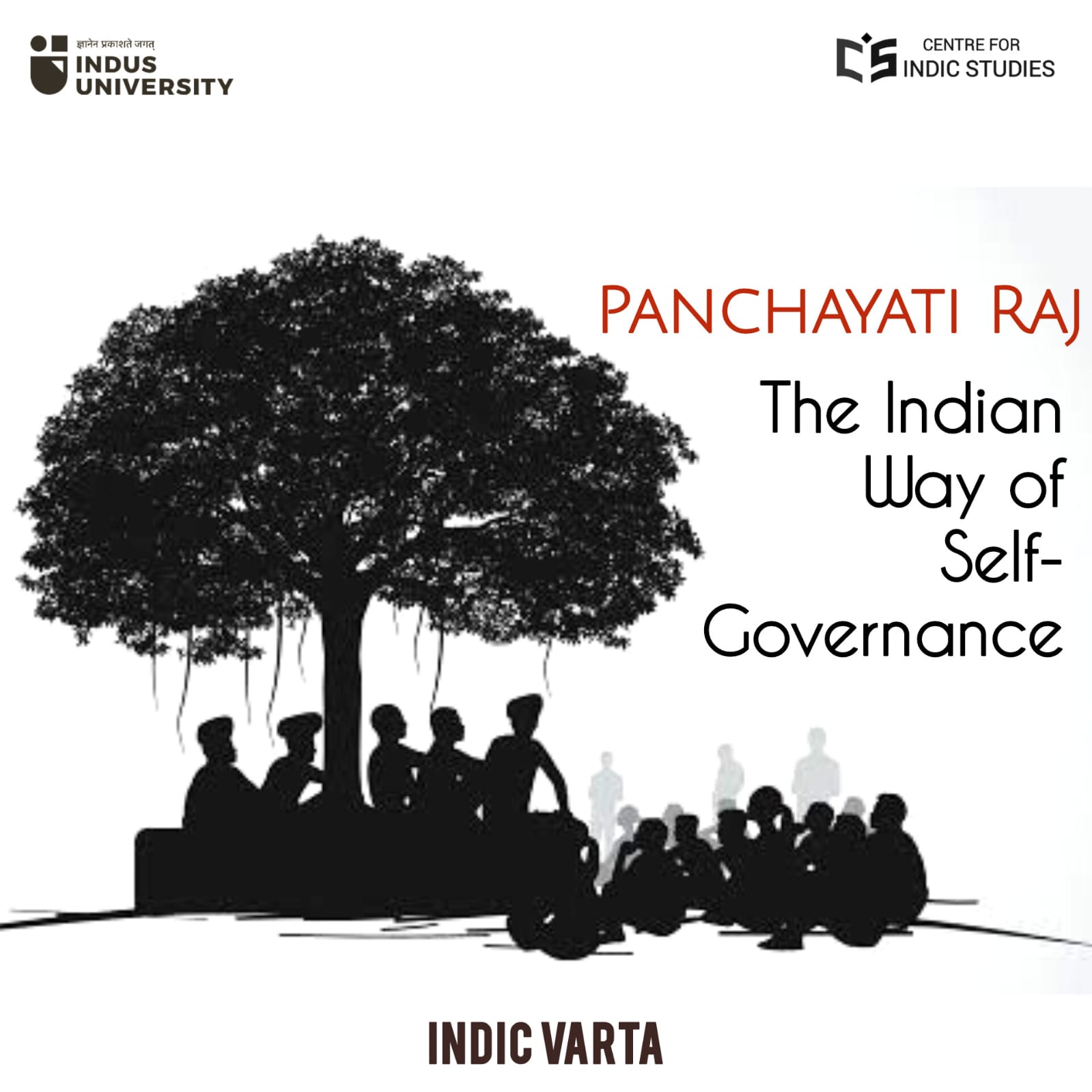- Visitor:17
- Published on:
Fukuyama’s Fallacies: Blind spots of Western Scholarship
What are the limitations of using a western academic lens in understanding India’s political scenario ? Read this brilliant analysis by Raghu Bhaskaran to find out.

[Disclaimer 1 : The above photograph is only a representative image]
Recently in a tiny corner of Social Media, there was a squabble and falling out, over the relevance of Thomas Sowell, to the Indian and Hindu narrative. I am trying to sublimate and expand on this debate, using Fukuyama’s recent article on Liberalism as the exhibit. It is worth considering the nature of alliance with western scholarship, and the sticking points can be seen from Fukuyama’s article.
[Disclaimer 2: Fukuyama uses India/Modi/Hinduism as aides/examples in his exploration of Liberalism, they are peripheral to the primary focus of the article. But reversing this, my primary focus is on the fallacies in how he references India/Modi/Hinduism and liberalism – its evolution, challenges are peripheral to this article. Liberalism and his take on Christianity for morals/equality etc., is for another day.]

Lack of contextual awareness
“The most fundamental principle enshrined in liberalism is one of tolerance: You do not have to agree with your fellow citizens about the most important things, but only that each individual should get to decide what those things are without interference from you or from the state. The limits of tolerance are reached only when the principle of tolerance itself is challenged, or when citizens resort to violence to get their way.”[1]
To anyone decently aware of Hindu history, the above is hardly any news. Aberrations apart, this has been the ethic and ethos of Hindus across millennia. The social conflicts were more due to economic competition expressed as privileges, than any article of ‘faith’.
In the scale of comparison with Christian Europe, Islamic zone, the State i.e. Kings, persecution of people for matters of faith, sectarian violent conflicts is hardly a blip compared to the longer arc of history, immensity of population and sheer diversity of India.
In fact the cases of such stand out in Indian history, because they are such rare exceptions, whereas with Islam and Christianity, they were ‘systemic’ and the norm.
Yet Fukuyama dates this attitude as “arose in Europe in the late 17th and 18th centuries in response to the wars of religion that followed the Protestant Reformation, wars that lasted for 150 years and killed major portions of the populations of continental Europe.”
And completely ignores, that compared to the West, where the “system (not people)” is highly homogenized where most people do subscribe to this definition of liberalism or since massive majority being Christians already, very little ‘interference’ is caused in people’s lives by others,
India lives with a massive population of Muslims – who don’t subscribe to this liberal tolerance by their theological doctrine and being the largest ‘free market/Open season’ of unconverted population, the prime target of Christian conversion industry, both which require constant ‘interference’ into other people’s lives.
Swallowing propaganda without verifying facts:
“Narendra Modi are trying to create that privilege some groups over others.”[2]
Can Fukuyama or other such critics, show a single piece of legislation or government policy, which proves the above statement?
The typical responses to the above would be,
• Abrogation of Article 370: Which does not privilege one group over another, but rather removes privileges one group/region had over others.
• CAA: A government is not required to play fair with non-citizens, like all governments it can choose to decide which immigrants, refugees, infiltrators are desirable as citizens and which are not. And CAA effectively accepts ‘liberals’ who fled neighbouring states which have an ‘illiberal’ state policy, i.e. a State religion which actively persecutes those not belonging to the religion.
It is weird for the otherwise liberals roaring to protest this, when their objections to the illiberal Islamic states and the illiberal Islamic migrants, is hardly a squeak in comparison.
And nothing else. In fact, it is my complaint that BJP is hardly a Hindu friendly party, given this lack of legislative action and continuing coddling of minorities when it comes subsidies, special privileges, education and jobs. At best it is Al-LAH party, Least Anti Hindu.
Thomas Sowell also fails in some ways in this aspect.
Nation Model – Nation State vs. Civilizational Nation:
“Modi’s India is inviting communal violence by shifting its national identity to one based on Hinduism.”[3]
“Liberalism also saw the rise of another competitor besides communism: nationalism. Nationalists rejected liberalism’s universalism and sought to confer rights only on their favored group, defined by culture, language, or ethnicity.”[4]
Again there is failure to understand that Nationalism comes in different flavours and not all can be judged by the model evolved in Europe.
Unlike in Europe of the West, nations like India cannot be defined any single entity – language, culture or ethnicity, yes there are constant attempts to favour one over other, which is to be expected as ‘competition’ in a free market of ideas and influence, but whenever the Union Government is even seen as playing favorites, sometimes even imagined, there has always been a strong backlash.
Yet nations do need something, other than mere political, economic and territorial linkages to have a sense of shared definition. And in the case of India, it is what we call as Hinduism, which in its essence is inherently liberal by the definition above. To reject the long legacy of its intrinsic essence to Indians, and pretend to accept a Non-Unique Social Secularism as the national identity, so that the illiberal Muslims and Christians won’t be offended, is highly damaging virtue signaling at a nation level.
Lack of knowledge of Dharma – philosophies and expressions:
This is not based on this Fukuyama’s article. But is often seen with people like Jordan Peterson.
Familiar only with the Judeo-Christian monotheism, even these scholars who have reasonable shaken loose of the blatant or subliminal indoctrination of their societies and lives, still have major challenges in comprehending the complexities of Dharma.
It is like learning a new language, a language that is far distant from one’s own in the network of language families – different sounds, grammar, senses etc.
Relatively it is easier for Hindus to make sense of Abrahamic religions, given their comparative lack of diversity, philosophical complexity and high degree of organization. Dogmas are easier to comprehend than Dharma.
So while I will engage with someone like Jordan Peterson for his lack of comprehension about Kaali, I won’t hold it against him for being unable to understand or dismissing her, as long as he does not outright abuse or insult and is willing to engage in a civil debate.
Summary:
The churn, the battle of ideas and ideologies happen at many, but interconnected levels. As a Hindu and Indian, the context of my battle is indeed different, but I can make allies, borrow weapons, from a different context, but with an awareness of which aspects are unsuitable for my contexts and how to compensate for them.
It is narrow and short-sighted to ignore someone or some scholarship, just because they don’t speak our language, know our contexts, as long as there is no explicit ideological enmity and intention to erase other worldviews, using economic and political leverage, it is on the scale of relative assessment and contextual application, that any idea, person or activity can be applied. That is irrespective of whether it be Jordan Peterson or Jaggi Vasudev.
References
- Francis Fukuyama, “Liberalism and Its Discontents”, in American Purpose (5th October 2020).https://www.americanpurpose.com/articles/liberalism-and-its-discontent/?fbclid=IwAR3zi1UVU06Bp-X_AP8Ny4TcYBOdjQd-lXv5aMR19woobZ8sLR9fUd-Tu44
- Ibid.
- Ibid.
- Ibid.
Center for Indic Studies is now on Telegram. For regular updates on Indic Varta, Indic Talks and Indic Courses at CIS, please subscribe to our telegram channel !
- 8 min read
- 0
- 0










